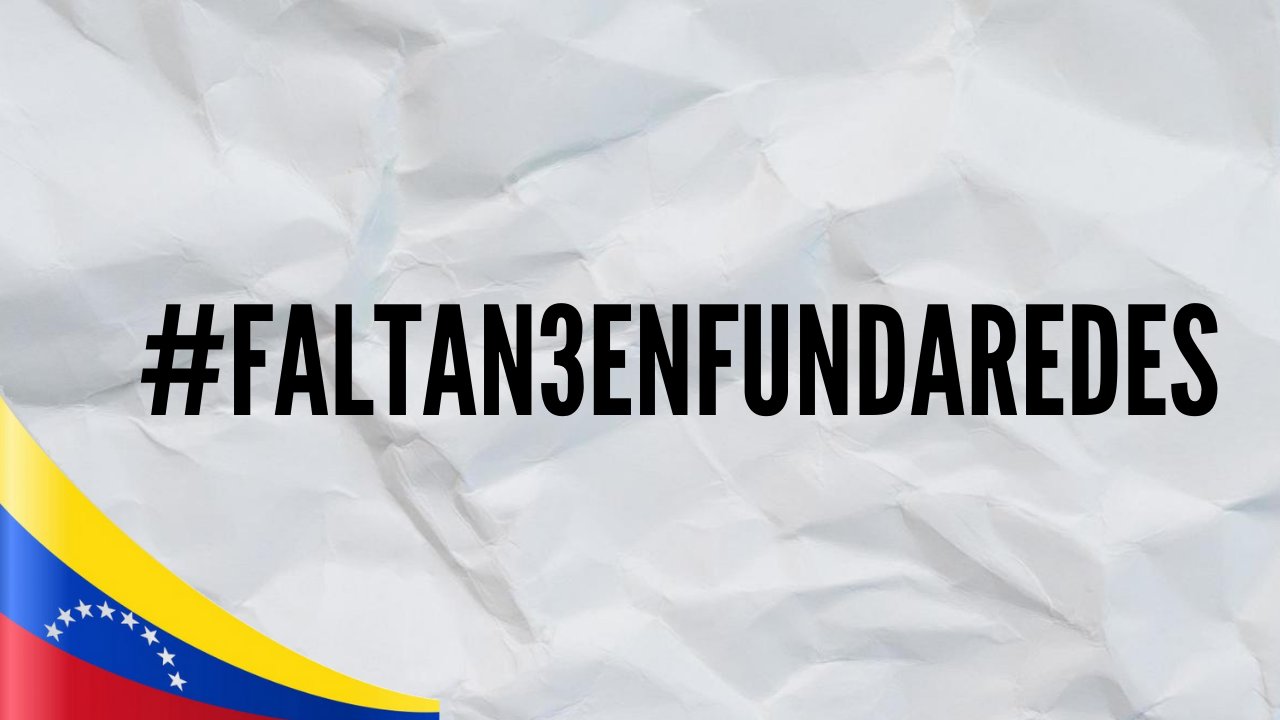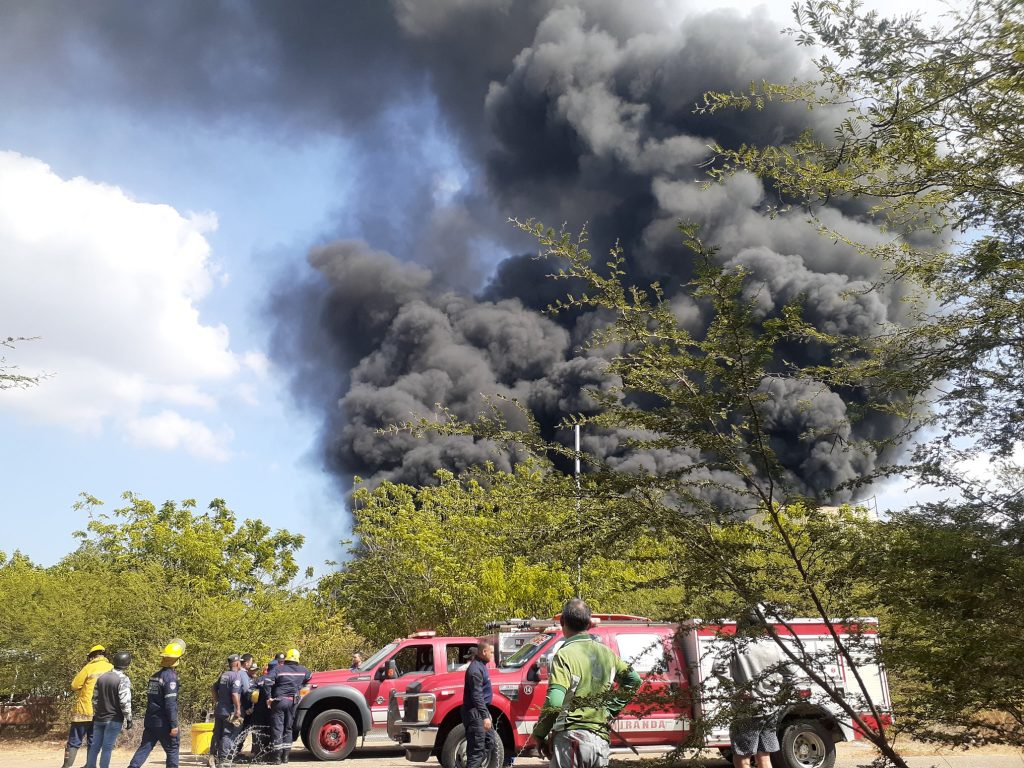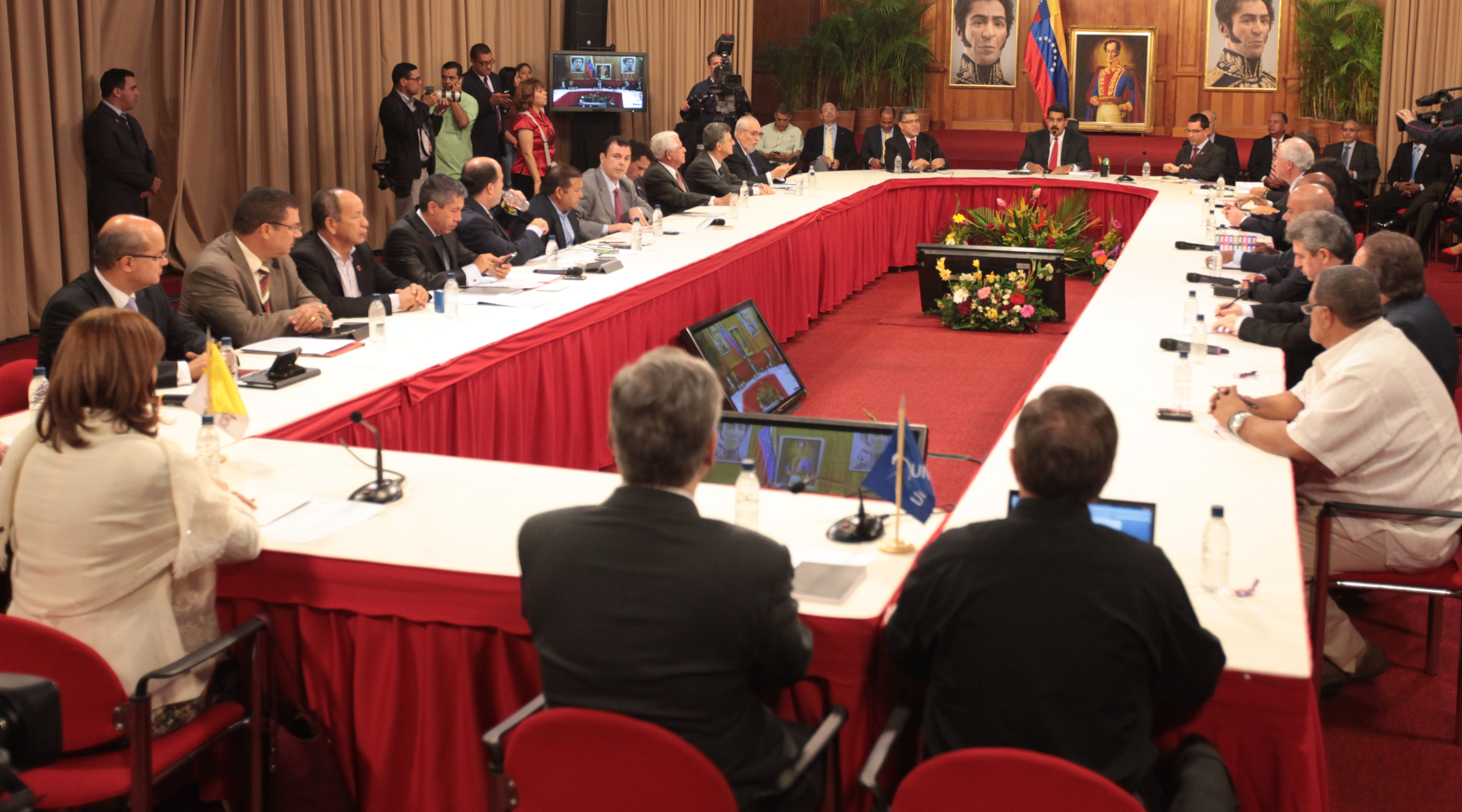According to political scientist Guillermo Tell Aveledo, dissatisfaction towards the regime still exists in Venezuela, and we must take advantage of that without abandoning the international or diplomatic pressure. “It is about connecting the two.” However, the external sector cannot be disconnected from the internal one, and the domestic block cannot be isolated from the world; “Otherwise, there would be nothing else to do, except for giving up”
Although Guillermo Tell Aveledo says he does not agree with showing up to vote on December 6 because the National Assembly has been stripped of every meaning, he understands the reasons of those in the opposition who consider the idea of going to the polls and does not believe that the electoral path should be completely ruled out. However, when analyzing the options available to the opposition, he warns to be cautious with the handling of expectations, because they can lead to another path of frustration. For the doctor in Political Sciences and university professor, the actors must bear in mind that Nicolás Maduro’s actions only seek the protection of the ruling oligarchy. “Chavismo likes to be underestimated, they like us to believe we are the most astute and capable, while they have kept us dominated for two decades now.”
-What is your opinion on the current crisis within the opposition?
-I am very concerned because it is something you could see coming, and it has also revealed important strategic, tactical, and even ideological differences, although the latter are not fundamental. One of the most worrying aspects warned of for a long time is the lack of rules in the alliance to resolve conflicts and make decisions. There used to be rules, but they deteriorated after the Table of Democratic Unity was dissolved. Now, the parties solve their issues behind closed doors, without an arbitrator or someone who could invoke a regulation; there is only a kind of informal agreement between them. The organizations delegated this responsibility to the presidency of the National Assembly, yet many presidents, except for Julio Borges and Omar Barboza, opted to guide their tenures towards a more partisan rather than unitary agenda; And it tightened the rope until the emergence of Juan Guaidó overwhelmed an alliance that no longer had regulatory mechanisms. As a consequence, the natural tensions in the political coalition reached a peak, and we entered a worrying path of mutual rejection.
“I believe the political leadership should speak from the perspective of internal resistance, connecting itself to the suffering of the people and, regarding the elites, identifying who it needs to ally with”
– Can that path of mutual rejection be straightened towards a new unitary political route in the short term?
-Today, we are not witnessing a lack of leadership but multiple leaderships at the same time, even though the pivot should be the interim government and President Juan Guaidó. However, what Henrique Capriles said in recent weeks is the same he has been saying for over a year and, whether we agree with his position or not, he has raised very valid elements. Recent statements from the political parties have also expressed some criticism without much being done about it; Whenever a remark is raised, based on the fact that a given policy has proved unsuccessful, it should guide us to deep reflection. However, making these reassessments in the absence of well-established and neutral norms or regulatory mechanisms leads to disintegration, and that is very dangerous because none of the factors can determine the dominant line on its own.
-Let us analyze the three proposals, starting with the consultation promoted by the interim government.
-From my perspective, the three proposals were born out of the patriotic spirit of their backers, and I do not believe any of them is conspiring; they only have different takes on the situation. The interim government has a big problem with the consultation because they have not finished defining it and saying whether it will seek to endorse a political route or try to legitimize the extension of the mandate of the National Assembly headed by Guaidó. The opacity in this regard makes me presume a lack of agreement between the parties on what is going to be consulted. Besides, people are tired of this type of initiative. Something that seems a bit scandalous to me is pushing to hold a national consultation to fifteen million Venezuelans after stating -rightfully- that there are no organizational and human conditions to participate in elections because the parties have been dismantled by the ruling power. This situation is worrying and incoherent because I feel the issue is not being seriously discussed. Once again, the expectations of the interim government may be too optimistic; this happened before with the much-needed support program for health workers, which proved difficult to materialize after it was first announced. You have to be cautious about managing expectations because they can lead to another path of frustration.
-What do you think about the possible participation in parliamentary elections proposed by Henrique Capriles?
-Capriles’ proposal goes in the opposite direction. His strategy is shockingly realistic, but it can be tactically weak because its implementation depends on the regime. It is no coincidence that the agreements seem tied to the convenience of the ruling party and the conditions pushed for by the counterpart remain unknown. The former governor is exposed to a gradual disclosure of electoral conditions that could make him a victim of accusations from some sectors close to the interim government; Even though he is not alone, his strategy has failed to grow and garner allies because it corresponds to what other sectors of society have been demanding. In conclusion, if you have a good strategy but a deficient tactical application, you are going nowhere.
-What about your assessment of María Corina Machado’s proposal to appeal only to external pressure?
-María Corina Machado’s position does not seem to be very different from that of the interim government, but, from a tactical perspective, it is not convenient for her to associate with it for reasons of personal positioning; that is why she gave her support to the interim government a few months ago and recently took it back. However, her specific approach seems very limited and not very viable, because there are no real possibilities that her request will be met under the current international context; this does not mean that her request is unfair or illegitimate, it is just not the time for such interventions in the international political system. I insist, her proposal may be morally correct, but it has no real impact. Also, this strategy is very convenient for her since it will never materialize and thus will never disappoint; so, she can stand a long time by that premise and strengthen her position.
“Sometimes we do not take the authoritarian nature of the regime seriously, and I see great cohesion between them; their unity is undoubtedly deeper than in the opposition”
-Do you think that any of these three options that you have just described is a possibility for real change? It seems that none of them has widespread support.
-The appeal to the will of the people is weak precisely because there is not much capacity for political mobilization. Is it because the options are not adequate? Partially. The truth is that they are deficient because they are separate. To me, there is an alternative that could work, one closer to Capriles’ position that does not exclude the interim government, though. That alternative is the internal growth and the political reinvention within the country, for a positioning that goes from local to national. There is still a very important dissatisfaction in society towards the regime, and we must take advantage of that without abandoning the international or diplomatic pressure; it is about connecting the two. However, the external sector cannot be disconnected from the internal one, and the domestic block cannot be isolated from the world; “Otherwise, there would be nothing else to do, except for giving up.
-How can the political leadership explain that the work of rescuing internal spaces and achieving medium-sized objectives must be retaken, without creating rejection in the people?
-People require a minimum sense of normalcy and realism to solve their problems, so I think they will value a leader that tells them how bad things are rather than a politician that nurtures fantastic expectations for overnight change because whenever the promised change fails to materialize, the illusion turned into frustration is more damaging than the momentary dismay of having been realistic. I believe the political leadership should speak from the perspective of internal resistance, connecting itself to the suffering of the people and, regarding the elites, identifying who it needs to ally with. For example, it is crucial to ensure that the military sector does not perceive the opposition as a threat.
– Should the opposition participate or not in the next parliamentary elections?
-I do not agree with going to vote on December 6 for a very simple reason: The National Assembly has been stripped of any meaning. An authoritarian system that does not recognize the powers of the legislative body makes Parliament not functional, and having a majority there does not have any political effect. It could be a symbolic victory, and we could see a repeat of the current situation, but that possibility does not exist any longer due to the divisions within the opposition and the political repression of the regime. It is too late to raise the debate on participation, it no longer makes sense. I think that Capriles’ proposal also had the challenge of convincing a very important sector of the opposition, and that has not happened so far. Not to mention the objective electoral conditions, including the legal situation of the political parties, the perverse rules for the distribution of seats, and many others. I understand the reasons for those considering the idea of participating, and I assume it as a legitimate attempt to seek to influence the national reality, but these are not the elections for that. However, I do not believe that the electoral path should be completely ruled out.
-Is Henrique Capriles’ position contrary to the consensus on international pressure towards the Maduro regime?
-The debate on the authority of the presidency of the National Assembly was going to take place with or without opposition candidates in the next parliamentary elections, to the point that the Parliament itself moved to set a position, which is precisely why President Juan Guaidó is seeking the consultation. For their part, the countries of the international community that support the fight for democracy in Venezuela have wondered and discussed what will happen after January 5, and I feel the interim government has underestimated the relevance and proximity of that date. The role of Capriles in the discussion these days surely does not contribute to solving this problem, but it is ultimately a consequence of the clumsiness of the interim government. Trying to solve a full year of mistakes in four months will not lead to satisfactory results.
“There will be no chance of solving the structural problems of Venezuela as long as Madurismo remains in power; this does not mean that the democratic alternative should wait for change to happen in order to react, because that would lead to inertia”
-What is your take on the year 2020 for the interim government?
-If I were to evaluate it academically, it would receive an F for not attending. The international tour at the beginning of the year was spectacular, but the domestic front was totally forsaken. Then you have the cash bonus for health workers that was announced months ago and only now is materializing due to several limitations. The truth is, there are not too many achievements to showcase at home, and that does not speak well of planning. The interim government has been an important chapter in Venezuelan politics; The great asset it has is the specific figure of Juan Guaidó and the hope that he aroused in much of society, a feeling that greatly diminished by the end of 2019 and bounced back after the trips to Europe and the United States last February. However, the internal disarticulation could not be resolved, and a new controversy over the control of the Federal Legislative Palace emerged; then came the problems with the political parties, and the political mobilization was put aside. Today, there is a feeling of great disconnection. If you want the crisis to be resolved in Venezuela, you must pay attention to what happens inside; if we are tied to the external option, it must be stated before affirming that every option is open when in reality neither thing has been done.
-What should come first for the opposition, alleviating the humanitarian situation or solving the political crisis in order to be able to tackle the social catastrophe?
-Both courses of action are not incompatible. Given that Guaidó claims to represent a government, his administration must engage in taking over power without neglecting the social issue. The presidency has certain powers and they must be assumed in that way. To me, none of the proposed routes is dismissing the problems of the people, but we can say they are secondary to a greater political objective. Let us be clear, there will be no chance of solving the structural problems of Venezuela as long as Madurismo remains in power; this does not mean that the democratic alternative should wait for change to happen in order to react, because that would lead to inertia.
-What is your perception of Chavismo today?
-The fact that they managed to put their own frictions behind their fundamental goal -the elimination of the political class that represents the opposition- has an important merit. Maduro convinced his followers to put up with the changes he is making, which are not for the benefit of the people but the protection of the ruling oligarchy; He has succeeded in imposing them at a much lower political cost. You see what he did with the smaller political parties within the Polo Patriótico (a coalition of pro-government parties), and he did it without much noise. Moderation inside Chavismo is opportunistic, and we cannot lose sight of that reality at times like this. Sometimes we do not take the authoritarian nature of the regime seriously, and I see great cohesion between them; their unity is undoubtedly deeper than in the opposition. Chavismo likes to be underestimated, they like us to believe we are the most astute and capable, while they have kept us dominated for two decades now.
Translated by: José Rafael Medina




